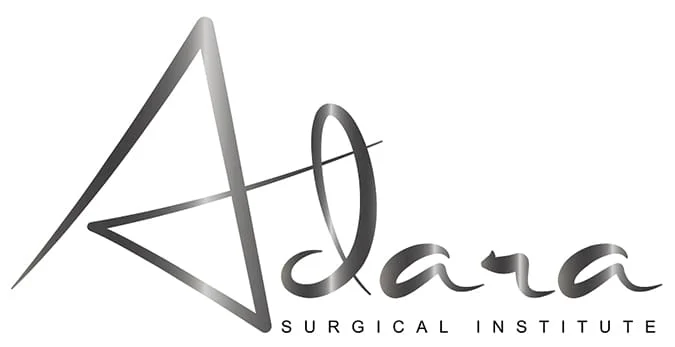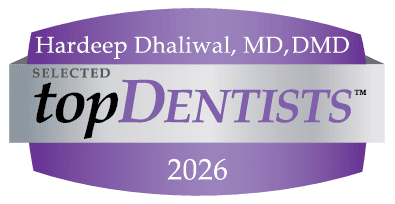Wisdom teeth, or third molars, often emerge between the ages of 17 and 25. While some develop without issue, many grow at an angle or become trapped beneath the gums, leading to pain, infection, and potential damage to surrounding teeth.
At Adara Surgical Institute, our board-certified oral and maxillofacial surgeons specialize in wisdom teeth extractions using state-of-the-art technology and minimally invasive techniques to ensure a smooth and comfortable experience.
When Is Extraction Recommended?
Not all wisdom teeth need to be removed, but extraction is often recommended in cases where they pose a risk to oral health.
As you age the roots of your teeth get longer and your jawbone becomes more dense. Removal and recovery is easier when you are younger which is why removal is recommended in late teens and early 20’s.
Signs that removal may be necessary include:
- Pain or discomfort: Persistent pain in the back of the mouth may indicate impaction or infection.
- Swelling or redness: Inflammation around the gums near wisdom teeth can be a sign of infection or gum disease.
- Difficulty cleaning: Wisdom teeth that are hard to reach can trap food and bacteria, leading to decay and gum disease.
- Crowding or shifting teeth: If there isn’t enough room in the jaw, wisdom teeth can push against neighboring teeth, causing alignment issues.
- Cysts or damage to bone: In rare cases, cysts can develop around impacted teeth, potentially harming surrounding bone structure.
How Wisdom Teeth Are Evaluated
General dentists begin monitoring wisdom teeth during routine checkups, typically in the mid-to-late teenage years. X-rays help assess their position, growth pattern, and potential for complications.
If signs of impaction, misalignment, or limited space appear, a referral to an oral surgeon is often recommended. Oral surgeons specialize in wisdom teeth extractions, ensuring safe removal and reducing the risk of complications.
If your wisdom teeth are healthy, fully erupted, positioned correctly, and not causing any pain or crowding, extraction may not be necessary. However, regular dental checkups are important to monitor any changes over time.
Types of Wisdom Teeth Impaction
Wisdom teeth can become impacted in different ways, making extraction more complex. Our oral surgeons will assess your X-rays to determine the level of impaction and create a personalized treatment plan.
- Soft tissue impaction: The tooth has emerged from the bone but remains partially covered by gum tissue, making it prone to infection.
- Partial bony impaction: Part of the tooth is still encased in the jawbone, preventing full eruption and often causing discomfort.
- Complete bony impaction: The entire tooth is trapped within the jawbone, requiring careful surgical removal for a safe extraction.
Wisdom Teeth Removal Procedure
Our oral surgeons perform wisdom teeth extractions using advanced techniques and customized sedation options to ensure a seamless experience.
- Consultation & X-Rays: We evaluate your oral health and use a 3D scan to determine the exact location and angle of your wisdom teeth.
- Anesthesia options: We offer conscious sedation and general anesthesia, depending on patient needs and comfort level.
- Surgical extraction: The surgeon makes a small incision, removes the tooth (sometimes in sections), and places sutures if necessary.
- Post-operative care: Patients receive detailed post-operative instructions to minimize complications like dry socket and ensure a smooth healing process.
What to Eat After Wisdom Teeth Extraction
A proper diet after surgery is crucial for a smooth recovery. Stick to soft foods that are gentle on healing tissues and avoid anything that could irritate the surgical site.
Recommended Foods:
- Smoothies (without straws)
- Yogurt
- Mashed potatoes
- Scrambled eggs
- Applesauce
- Oatmeal
- Broth-based soups
Foods to Avoid:
- Crunchy or hard foods
- Spicy foods
- Acidic foods that may irritate the gums
- Using straws, as suction can dislodge the blood clot, leading to dry socket
Why Choose Adara Surgical Institute For Wisdom Teeth Removal?
Patient satisfaction is at the heart of what we do. Here’s what some of our patients have shared about their wisdom teeth removal experience at Adara Surgical Institute:
Adara Surgical Institute
Schedule Your Wisdom Teeth Consultation
To book a wisdom tooth consultation at our oral surgery office in Issaquah, WA, call (425) 428-5888 or visit us at 6505 226th Pl SE STE #100 Issaquah, WA.
We are located in the heart of Issaquah, WA, in the back of Meadow Creek Business Center. We have plenty of parking and easy access into our building, which is conveniently located on the first floor and easily accessible for all patients.
Request an AppointmentFAQs
Can I brush my teeth after wisdom extraction?
Yes, but avoid brushing near the surgical site for the first 24 hours. Use a soft-bristled toothbrush and rinse gently with warm salt water.
How long does healing from wisdom teeth extraction take?
Most patients recover within 7-10 days. Swelling typically peaks at 48 hours and gradually subsides. Following post-op care guidelines can speed up healing.
How painful is a wisdom tooth extraction?
The procedure itself is not painful due to the use of anesthesia. Patients typically experience mild to moderate discomfort during recovery, which can be managed with prescribed or over-the-counter pain medication. Swelling and soreness usually peak within the first 48 hours and gradually subside over the following days.
What are the dos and don’ts after wisdom tooth removal?
Do:
Rest and keep your head elevated to reduce swelling
Eat soft foods and drink plenty of water
Take prescribed or recommended pain relievers as directed
Gently rinse with warm salt water after meals
Don’t:
Smoke, use straws, or rinse vigorously
Eat crunchy, spicy, or acidic foods
Engage in intense physical activity

